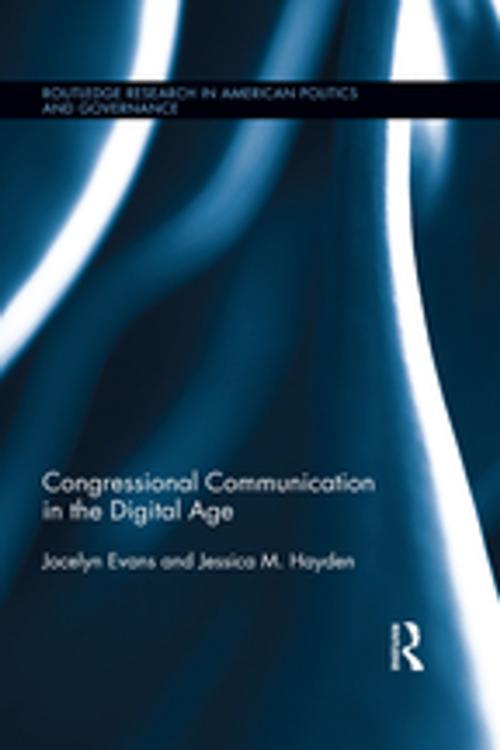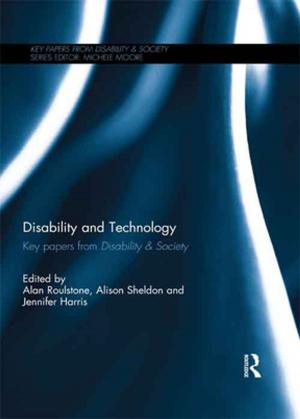Congressional Communication in the Digital Age
Nonfiction, Social & Cultural Studies, Political Science, Politics, Government| Author: | Jocelyn Evans, Jessica M. Hayden | ISBN: | 9781351754347 |
| Publisher: | Taylor and Francis | Publication: | July 6, 2017 |
| Imprint: | Routledge | Language: | English |
| Author: | Jocelyn Evans, Jessica M. Hayden |
| ISBN: | 9781351754347 |
| Publisher: | Taylor and Francis |
| Publication: | July 6, 2017 |
| Imprint: | Routledge |
| Language: | English |
Communication defines political representation. At the core of the representational relationship lies the interaction between principal and agent; the quality of this relationship is predicated upon the accessibility of effective channels of communication between the constituent and representative. Over the past decade, congressional websites have become the primary way constituents communicate with their members and a prominent place for members to communicate with constituents. Yet, as we move toward the third decade of the 21st century, little work has systematically analyzed this forum as a distinct representational space.
In this book, Jocelyn Evans and Jessica Hayden offer a fresh, timely, and mixed-methods approach for understanding how the emergence of virtual offices has changed the representational relationship between constituents and members of Congress. Utilizing strong theoretical foundations, a broad historical perspective, elite interviews, and rich original datasets, Evans and Hayden present evidence that virtual offices operate as a distinct representational space, and they demonstrate that their use has resulted in unprecedented and ill-understood changes in representational behavior.
Congressional Communication in the Digital Age contributes to the scholarship on representation theory and its application to the contemporary Congress. It is valuable reading for students and researchers interested in American politics, political communication, and legislative politics.
Communication defines political representation. At the core of the representational relationship lies the interaction between principal and agent; the quality of this relationship is predicated upon the accessibility of effective channels of communication between the constituent and representative. Over the past decade, congressional websites have become the primary way constituents communicate with their members and a prominent place for members to communicate with constituents. Yet, as we move toward the third decade of the 21st century, little work has systematically analyzed this forum as a distinct representational space.
In this book, Jocelyn Evans and Jessica Hayden offer a fresh, timely, and mixed-methods approach for understanding how the emergence of virtual offices has changed the representational relationship between constituents and members of Congress. Utilizing strong theoretical foundations, a broad historical perspective, elite interviews, and rich original datasets, Evans and Hayden present evidence that virtual offices operate as a distinct representational space, and they demonstrate that their use has resulted in unprecedented and ill-understood changes in representational behavior.
Congressional Communication in the Digital Age contributes to the scholarship on representation theory and its application to the contemporary Congress. It is valuable reading for students and researchers interested in American politics, political communication, and legislative politics.















